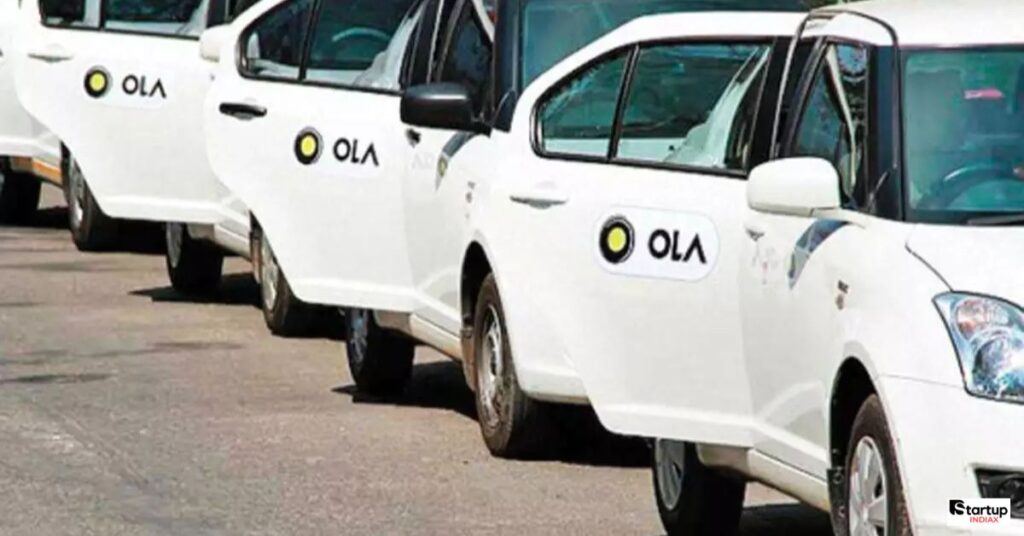Maharashtras 2025 Cabs Policy introduces a landmark reform: Fines for Driver Cancels a Ride are now mandatory, directly credited to the commuter’s account. This change is designed to restore trust, fairness, and reliability in Maharashtra’s app-based taxi ecosystem, tackling persistent issues like last-minute cancellations, unpredictable surge pricing, and commuter safety. In this article, Startup INIDAX explores the five key ways these fines-and the broader policy-build commuter trust, make rides safer, and ensure a fairer deal for both passengers and drivers. Whether you’re a daily rider or a startup enthusiast, this guide covers everything you need to know about the new rules and their impact.
Why Maharashtra Needed a New Cabs Policy
The explosive growth of ride-hailing apps like Ola, Uber, and Rapido brought convenience but also new headaches:
- Passengers were frequently left stranded by last-minute driver cancellations.
- Surge pricing often made rides unaffordable, especially during peak hours or bad weather.
- Safety and transparency were ongoing concerns, particularly for women and late-night travelers.
- Drivers often faced unclear earnings and lacked welfare protections.

These issues led to mounting complaints and a Supreme Court directive for states to regulate the sector. Maharashtra’s response is the Aggregator Cabs Policy 2025, a comprehensive set of reforms to make app-based taxi services safer, fairer, and more commuter-friendly
Key Features of Maharashtras 2025 Cabs Policy
Here’s what stands out in the new policy:
- Fines for Driver Cancels a Ride: Drivers who cancel after accepting a booking must pay a fine-₹100 or 10% of the fare, whichever is less-credited instantly to the rider’s account.
- Passenger Cancellation Penalty: Passengers who cancel pay ₹50 or half the fare (whichever is lower) to the driver, ensuring shared responsibility.
- Surge Pricing Cap: Surge fares are limited to 1.5x the base fare, ending extreme price hikes during peak demand.
- Discounts: Aggregators can offer up to 25% discounts during non-peak hours, making rides more affordable.
- Safety Measures: Mandatory GPS tracking, police verification for drivers, and special options for women’s safety, like all-women carpools and female drivers.
- Driver Welfare: At least 80% of each fare goes to the driver, plus mandatory insurance and training.
- Aggregator Accountability: Platforms must have a physical office in Maharashtra and comply with strict licensing and technical standards.
5 Ways Fines for Driver Cancels a Ride Build Trust
1. Immediate Compensation for Commuters
The most direct benefit of the new fines is that commuters are no longer left helpless when a driver cancels. Now, if a driver cancels after accepting a booking, the rider receives ₹100 or 10% of the fare, whichever is less, credited instantly to their account. This immediate compensation is a tangible gesture that acknowledges the inconvenience and values the rider’s time.
“Drivers who cancel after accepting a ride will face a financial penalty-and the affected customer will get the same amount as compensation,” notes the new policy.
2. Reduced Last-Minute Cancellations
Previously, drivers could cancel rides with little or no consequence, leading to frustration and uncertainty for passengers. With the introduction of fines for driver cancels a ride, there’s a strong financial incentive for drivers to honor accepted bookings. This change is expected to significantly reduce last-minute cancellations, making rides more reliable and predictable.
3. Transparent and Fair Fare System
The new policy doesn’t just penalize cancellations-it also makes the fare system more transparent:
- Surge pricing is capped at 1.5 times the base fare, ending the days of unpredictable, sky-high fares during peak hours.
- Discounts of up to 25% are allowed during off-peak times, encouraging affordable travel.
- Fare structures and penalties are now overseen by regional transport authorities, ensuring platforms can’t change rules arbitrarily.
This transparency gives commuters confidence that they’re being treated fairly every time they book a ride.
4. Enhanced Safety and Accountability
Safety is a core focus of Maharashtras 2025 Cabs Policy:
- GPS Tracking: Every cab must have real-time GPS, allowing authorities and customers to track rides for added security.
- Police Verification: All drivers must undergo background checks, reducing risks for passengers.
- Women’s Safety: Women can opt for female drivers and all-women carpools, a move welcomed by women’s groups.
These features, combined with the new cancellation penalty, create a system where drivers are held accountable and passengers feel safer.
5. Empowering Both Riders and Drivers
The fines for driver cancels a ride aren’t just about punishing drivers-they create a balanced, fair system:
- Passengers are compensated for cancellations, while drivers also receive a penalty if a passenger cancels unnecessarily.
- Drivers are guaranteed at least 80% of the fare, plus training and welfare benefits, making the profession more sustainable.
- Aggregators must provide insurance and maintain local offices, improving support for both drivers and riders.
This approach empowers both sides, fostering a healthier relationship between drivers, platforms, and commuters.
Impact on App-Based Taxi Services and Drivers
For companies like Ola, Uber, and Rapido, the policy means:
- Updating app algorithms to include new cancellation penalties and surge pricing caps.
- Ensuring all drivers are police-verified and trained.
- Setting up physical offices in Maharashtra for better accountability and support.
For drivers, the policy means higher earnings (at least 80% of the fare), access to insurance, and clear rules on cancellations and conduct. However, drivers will need to be more cautious about accepting and then cancelling rides, as repeated fines could impact their income.
Safety, Women’s Security, and Regulatory Oversight
Safety upgrades are at the heart of the policy:
- Mandatory GPS and Emergency Features: All cabs must have GPS and in-app emergency contacts.
- Women’s Security: Only women drivers and co-passengers are allowed for ride-sharing with women, safeguarding privacy and safety.
- Regulatory Oversight: Regional transport authorities will monitor fares, penalties, and compliance, ensuring transparency and quick resolution of complaints.
These reforms aim to make Maharashtra’s ride-hailing ecosystem among the safest and most transparent in India.
Challenges and What’s Next
While the policy is comprehensive, implementation will be key:
- Aggregators must quickly update their platforms and train drivers.
- Monitoring compliance across thousands of drivers and vehicles will require robust systems.
- Some drivers may resist stricter penalties, especially if they feel cancellations are sometimes unavoidable.
Despite these challenges, the policy sets a strong foundation for a safer, fairer, and more reliable ride-hailing experience in Maharashtra.
Conclusion: A New Era for Maharashtra’s Commuters
Maharashtras 2025 Cabs Policy, with its focus on Fines for Driver Cancels a Ride, marks a turning point for urban mobility in the state. By introducing immediate compensation, capping surge pricing, and mandating safety reforms, the policy builds trust and transparency for commuters while supporting drivers with fair earnings and welfare benefits. Startup INIDAX will continue to track these reforms and their impact on Maharashtra’s startup and tech ecosystem, ensuring you stay updated on the future of mobility.

